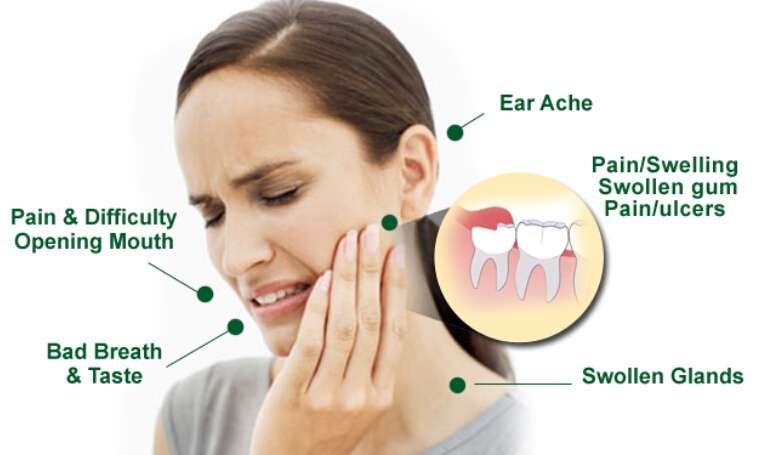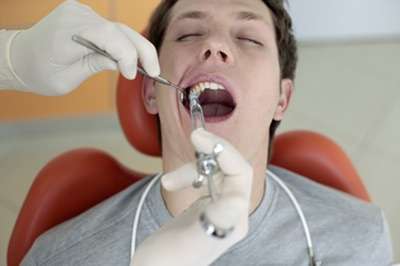Wisdom teeth are a third set of molars in the back of your mouth. They appear between ages of 17-25. As impacted wisdom teeth affect over 70% of the population, most people extract wisdom teeth to one of the following reasons:
Reasons to Extract Wisdom Tooth
- They’re impacted and may not come in normally.
- Wisdom teeth pain – They are not able to emerge or are trapped in your jawbone or gums,
- Wisdom tooth may emerge at a wrong angle.
- Your mouth isn’t big enough. So, your jaw has no room for an extra set of molars.
- You have cavities or gum disease in your wisdom teeth due to poor mouth hygiene.

“The wisdom tooth develops in a sac within the jawbone. The sac can fill with fluid, forming a cyst that can damage the jawbone, teeth and nerves. Rarely, a tumour — usually noncancerous (benign) — develops. This complication may require removal of tissue and bone. Partially impacted wisdom teeth appear to be at higher risk of tooth decay. The difficulty cleaning impacted, partially erupted wisdom teeth increases the risk of developing a painful, inflammatory gum.” Source: mayoclinic
Impacted wisdom teeth can cause several problems in the mouth like- damage other teeth, form cysts that can damage the jawbone, risk of tooth decay/caries or cause pericoronitis (a gum disease). If this is also a case with you, your dentist may suggest you to extract your tooth to get relieved from wisdom tooth pain.
#AffordableRCT-OmDentalKhar

In the beginning your dentist will get one of these types of anaesthesia to numb your mouth.
- Local: A shot of Novocaine in your gums to relax or even doze during surgery
- IV sedation: The surgeon will numb your mouth and also give you drugs through a vein in your arm to make you drowsy.
- General: You’ll either get drugs through a vein or breathe gas in through a mask. You’ll be asleep the whole time or for an hour or so after the surgery.
Next the dentist may have to cut your gums or bone to get the teeth out. The wounds are then stitched to heal quickly (the stitches dissolve after a few days). In most cases, the dentist stuff gauze pads in your mouth to soak up some of the blood.
The Do’s and Don’ts after Surgery
Dos for Wisdom Tooth Pain Relief:
- Use an ice pack to curb swelling.
- Use moist heat for a sore jaw.
- Exercise your jaw by gently opening and closing your mouth.
- Eat soft/liquid foods.
- Drink plenty of fluids.
- Don’t brush your teeth against any blood clots.
- Take medications in time as prescribed to ease pain or swelling.
- Consult your dentist if you have a fever, or if your pain doesn’t improve.
Don’ts:
- Avoid drink through a straw as sucking may loosen blood clots.
- Rinse your mouth gently with salt water.
- Don’t eat hard, crunchy, or sticky foods.
- Don’t smoke as it can slow your healing.